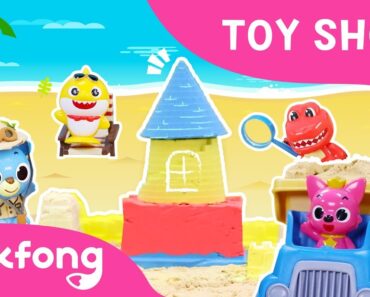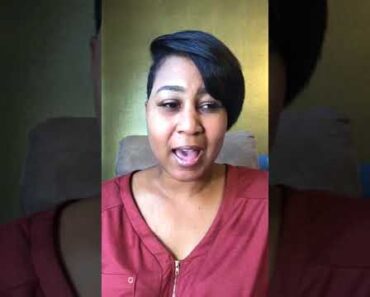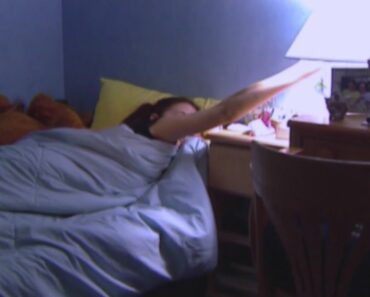Key Pointers
- Wheezing is a whistling or high-pitched sound usually heard when breathing out or exhaling.
- Most children experience at least one episode of wheezing.
- Common causes of wheezing include respiratory infections and allergies.
- Persistent wheezing may indicate asthma, which requires long-term management.
- Home remedies, such as using a cool-mist humidifier and serving more fluids, can ease wheezing in most children.
Family doctors and physicians frequently encounter cases of wheezing in kids. The wheezing sound is mostly caused when air is trying to move through the narrow or constricted airway of the lungs (1). According to a study shared by the American Academy of Family Physicians, wheezing is as prevalent as in 40% of the pediatric population by the age of three, and nearly half of all children will have experienced at least one wheezing episode by the age of six (2) (3).
Read this post to learn the types and causes of childhood wheezing and how it can be diagnosed and managed.
Symptoms Of Wheezing In Children
Wheezing in children is characterized by (1):
- High-pitched breathing
- A purring or whistling sound
The wheezing sound is most obvious while your child is exhaling or breathing out.
Causes Of Wheezing In Children
Several conditions and factors can lead to wheezing in children (2) (3).
- Children younger than five years often experience wheezing due to asthma (4). Asthma is likely to be the source of episodic or recurrent wheezing, which is linked to seasonal triggers, such as pollen.
- Wheezing accompanied by nasal flare-up and intercostal retractions (reduced air pressure inside the chest) could occur due to bronchiolitis (a respiratory syncytial virus infection), allergies, or croup (an infection of the upper airway).
- A child may experience wheezing with cough and feeding-associated vomiting due to gastroesophageal reflux disease (GERD).
- Several respiratory infections, such as bronchitis and pneumonia, can cause breathing problems and wheezing.
- If your child’s wheezing wakes them up at night and is accompanied by snoring, it may be due to obstructive sleep apnea.
- Wheezing and sharp whistling sounds while breathing, especially during cold and allergies, may indicate nasal congestion (blocked nose).
- Certain craniofacial anomalies and congenital abnormalities could lead to wheezing in infants and younger children.
- Various environmental factors, such as foreign body aspiration, may also cause wheezing in children.
Research indicates that some children may experience wheezing due to maternal factors during pregnancy, such as maternal smoking, low iron levels, low vitamin D levels, obesity, and poor folic acid intake (5).
Types Of Wheezing In Children
Wheezing in children can be of the following types depending on its pattern and duration (5).
- Episodic wheeze is usually caused by a viral cold where your child may wheeze for a short period in between episodes.
- Multi-trigger wheezing in children may occur with/without evidence of an acute viral infection.
- Never or infrequent wheeze refers to wheezing in children for at least once in their life.
- Transient early wheeze begins in the first year of life and lasts through the second year before subsiding after the third year. It is mostly caused by factors such as maternal smoking or exposure to smoke, preterm birth, low maternal age, and low birth weight.
- Intermediate wheeze can start between the ages of 1.5 and 3.5 years and last throughout later childhood. It is linked to allergy sensitization and lower pulmonary function test (PFT) scores.
- Late-onset wheeze is most commonly associated with nasal allergies, and it occurs more frequently in children aged three to six years.
- Persistent wheezing can occur due to asthma, severe respiratory infection, or constant exposure to an allergen.
When To Call A Doctor
Although wheezing is not harmful, you should immediately call a healthcare provider if the child has (6):
- Breathing difficulty
- Sudden onset of wheezing after a bee sting, taking medicine, or eating a food item
- Become unconscious or stopped breathing
- Bluish or pale lips or face
- Unusual fatigue
- Recently choked on a small object or food
- Rapid or uneven breathing
- Temperature over 98.6°F (37°C)
- Been refusing to drink or eat
Diagnosis Of Wheezing In Children
In most cases, wheezing can be clinically diagnosed. Your child’s doctor would obtain (2) (5):
- Detailed family history and clinical history of a child
- Detailed information on the type of wheezing and associated symptoms
- Pattern and seasonality of wheezing
If your child has chronic and persistent wheezing, the doctor may prescribe additional tests to find the underlying cause.
- Physical examination, especially in chronically ill children, to check for any signs of metabolic disorders, immunodeficiencies, or cystic fibrosis.
- Chest radiographs include chest X-rays or a chest CT scan to detect any structural anomalies or foreign body aspirations.
If a certain etiology is suspected in your child, the doctor may suggest:
- Spirometry to detect asthma
- If an allergy is suspected, a radioallergosorbent test, skin test, or immunoglobulin assay can be used to evaluate IgE levels
- A complete blood count to detect eosinophilia
- Barium meal tests to detect gastrointestinal structural problems
- A pH test if your child is showing symptoms of GERD
- A swallowing assessment if a foreign body aspiration is being suspected
Treatment For Wheezing In Children
The treatment may differ depending on the type and underlying cause of wheezing in children. Some of the pharmacological treatments of wheezing may include the following (5).
- Bronchodilator: These are drugs that dilate the bronchi and make it easier for the child to breathe. In mild cases of wheezing, your child’s doctor may preferably prescribe bronchodilator therapy with a metered-dose inhaler and nebulizer.
- Corticosteroids: If your child has recurrent and persistent or late-onset wheezing, inhaled corticosteroids can be effective. A short course of systemic steroids may be prescribed if your child has recurrent wheezing after a respiratory infection.
Some other medicines include antibiotics for bacterial infections and antihistamines to manage allergies. Do note that asthma medication can only be administered to children aged over 12-18 months (1).
Home Remedies For Wheezing In Children
If your child has mild wheezing, you may try some of these remedies for symptomatic relief after consulting your healthcare provider (3) (6).
- Let your child breathe warm mist, such as with a shower running in a closed bathroom.
- Serve plenty of fluids, such as homemade lemonade, soups, and broth, to ease any irritation in the airways.
- Use homemade or over-the-counter saline (saltwater) nose drops to loosen up dried nasal mucus.
- Place a cool-mist humidifier in the child’s room.
- Prevent exposure to tobacco smoke, exhaust from automobiles, and volatile chemicals.
Wheezing in children may often subside as they grow older, but it may persist in those with chronic conditions such as asthma. Speak to the child’s doctor to learn ways to manage persistent wheezing. You may take note of the triggers that lead to wheezing episodes and avoid them. Adequate rest and care can help prevent wheezing in children due to infections and allergies.
References:

































